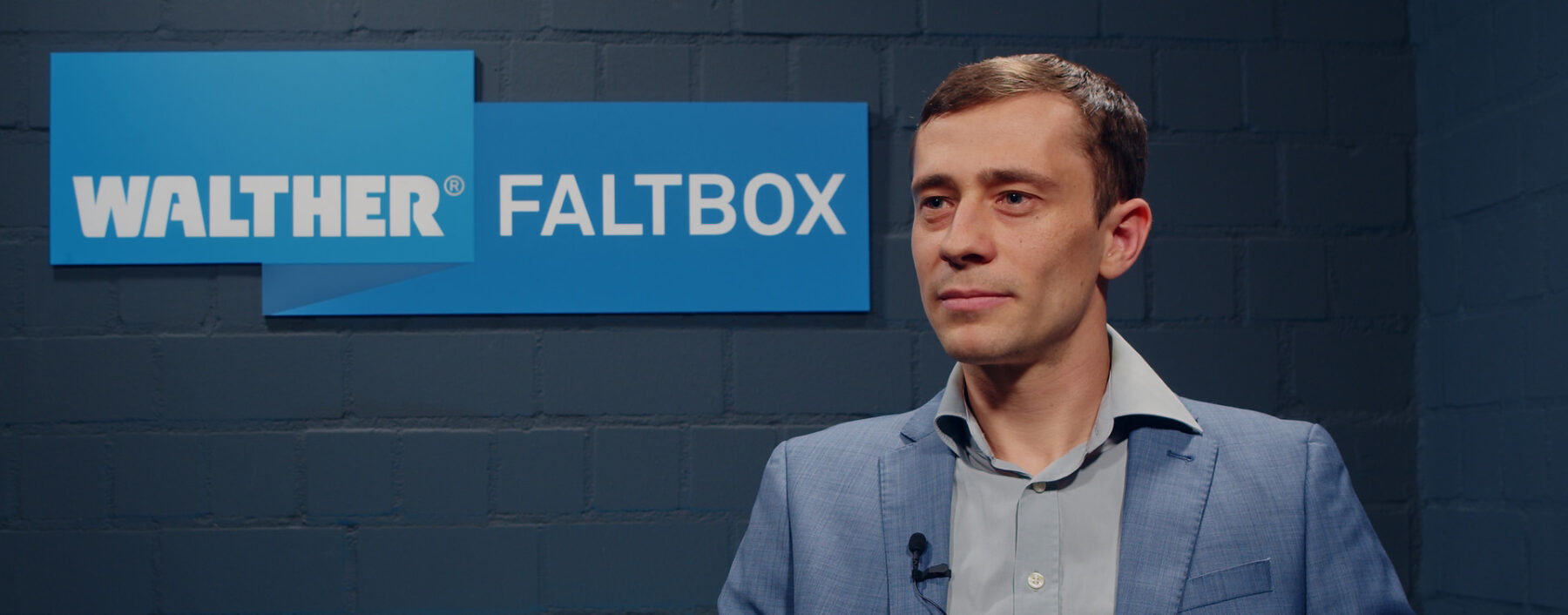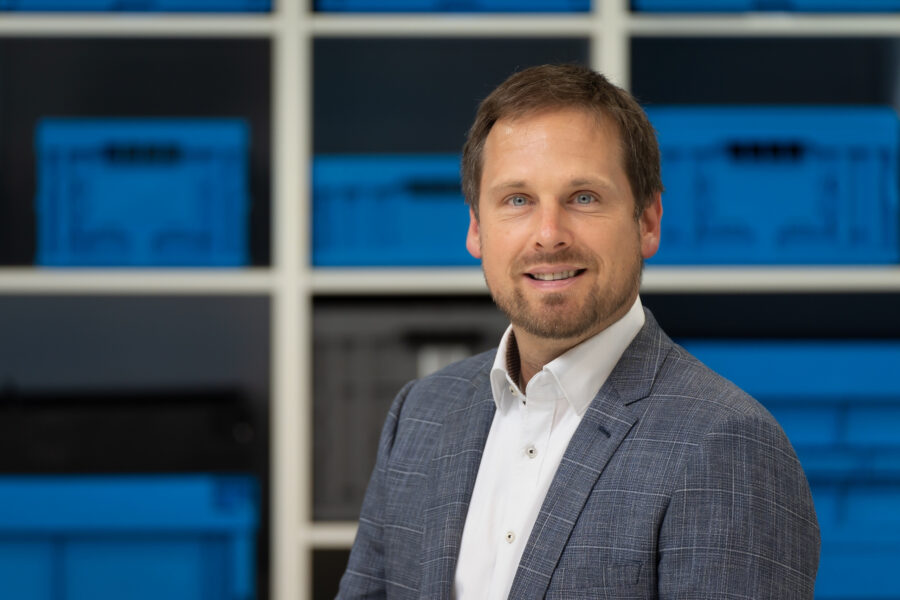Playing the video will establish a connection to third parties. For more information, please see our Privacy Policy.
4 questions to André Hecker
André Hecker about Euro Plant Tray eG, our solution to disposable products and how we want to make the green industry a little greener.
WALTHER has developed plant trays for the Euro Plant Tray eG. What is behind the project?
André Hecker: According to studies, around 150 million disposable plant trays are destroyed every year in Germany. The Euro Plant Tray cooperative, with over 30 members – consisting of wholesalers, growers and DIY stores – has set itself the goal of establishing a standardized industry solution on the European market. Together with EPT, we have designed a reusable plant tray that is built to last for many years and is intended to gradually replace the current disposable solutions.
André Hecker: Our design is based on the original Normpark 400, which fits plant pots with a diameter of 12 cm and is particularly suitable for top-heavy houseplants. Our tray is made of high-quality polypropylene with a significant proportion of recycled material. The additional stacking bars ensure high dimensional stability when the trays are empty. Thanks to integrated water reservoirs, the plants in our tray are constantly supplied with water during transport and warehousing. Finally, each tray can be customized with an integrated RFID in-mould barcode.
What were the challenges in this project?
André Hecker: Due to the rather special constellation with the many market participants at EPT, one or two challenges and requirements changed throughout the course of the project, to which we then reacted accordingly with our tray design. Among other things, we looked at the compatibility of over 100 different pot sizes with our tray. In a prototype phase of 20,000 test trays, we also further refined the requirements for a reusable tray. These were then incorporated into our final design.
What happens now?
André Hecker: We were able to finalize our tray design through the prototype phase and the positive feedback we received as a result. Fortunately, we were able to qualify for the final production of these trays. Production is scheduled to take place at the beginning of 2025. With the delivery, we can then begin to make the green industry a little greener. We are particularly pleased to be making our contribution to increasing sustainability and avoiding plastic waste.


